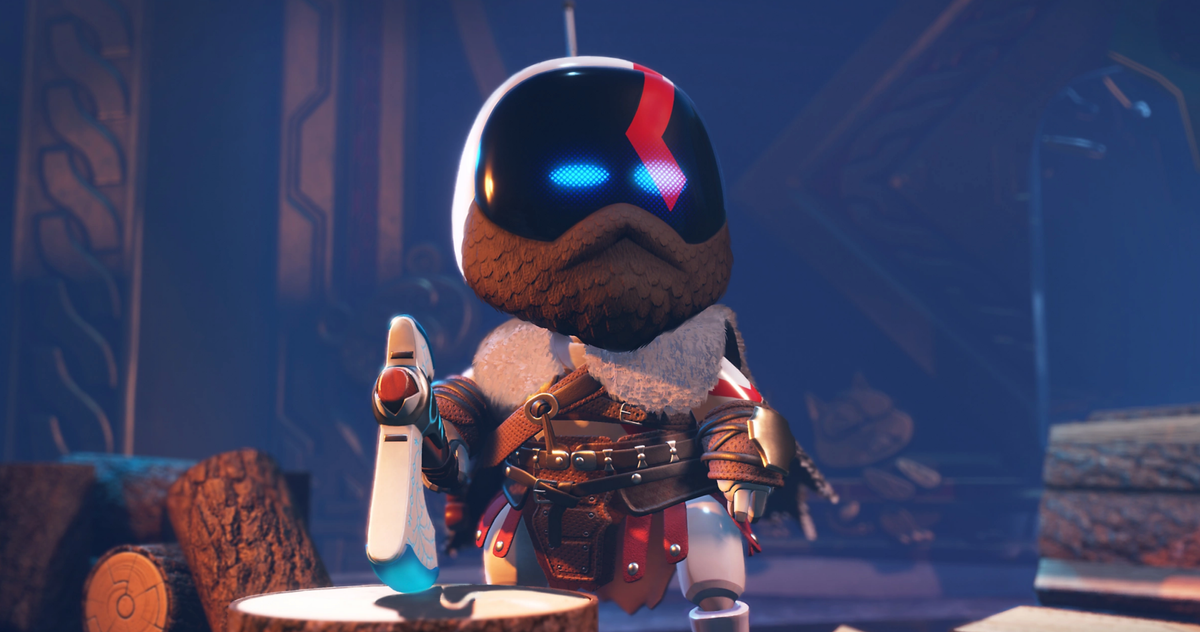Photo: Sony Interactive Entertainment
For a time in the 1990s and 2000s, mascot platformers like Mario and Sonic were on top of the world. These cute little dudes bounded across kaleidoscopic levels, helping drive the sale of millions of consoles for their makers, Nintendo and Sega, respectively. Sony had its own cohort: Crash Bandicoot; Spyro (for a few years); Jak and Daxter. They were the perfect torchbearers for a medium of ostensibly simple pleasures still in its relative infancy.
Before long, this wholesome type of video-game star began to go extinct. Game-makers aged alongside their audiences; graphics rendering technology dramatically improved. Cartoon characters were out; realistic(ish) humans were in. Rather than experiences designed to appeal to our inner child, there was a growing appetite for mature experiences. Case in point: Naughty Dog — the studio that made the puckish platformer Crash Bandicoot in 1996 would go on to release classy postapocalyptic thriller The Last of Us 17 years later.
It’s amid this ongoing downturn for blockbuster platformers that Astro Bot, from Sony’s Japanese studio, Team Asobi, arrives. It’s a throwback platformer in the purest sense, one of jumping, coin-collecting, and ingenious power-ups. It’s also the most straightforwardly fun video game the company has published in years, certainly since the last Astro Bot game, Astro’s Playroom, which arrived in 2020 as a showcase for the just-released PlayStation 5. Absent is the elevated tone of Sony’s prestige titles like 2020’s samurai action game Ghost of Tsushima (which arrived with an Akira Kurosawa visual filter); present are emotions of joy, delight, and finely calibrated nostalgia. Sure, you’ve played a platformer like this before: Discrete levels are filled with an array of obstacles and enemies, some of which culminate in gigantic bosses whose easygoing challenge offers a merciful break from the likes of Elden Ring. But you’ve likely not played such a generously stuffed toy bag of a platformer: It feels as if Team Asobi pulls out a new toy every couple of minutes.
In this way, Astro Bot feels distinctly modern, a sugar-rush refinement of 40 years’ worth of 2-D and 3-D platforming ideas into a single furiously entertaining package. Levels rise out of a cloudy ether; you roll, spin, and lollop across them all while keeping a beady lookout for secrets. At one point, I watered a sad-looking seedling that caused it to blossom into a gigantic, rapping tree. “Jump into my mouth,” it implored to a soundtrack of electro-boogie funk, all while digital flowers danced in hypnotic, psychedelic unison around its trunk. I obliged, of course.
Forward momentum and exploration are the twin thrusts of Astro Bot, but you will want to take a beat and soak up its visual splendor. Crates explode with hundreds of tiny apples; leaves puff up realistically into the air as you kick through them. So much is happening on the screen that it frequently appears to glitter. Early in the game, you’re given the ability to slow down time, a power-up that doesn’t just lead to inventive platforming across rapidly moving razor-sharp knives but the opportunity to gawp further at the spectacle.
At various points, all I wanted to do was prod and poke at this wonderfully tactile world — to pirouette on ice and peer at the scratch left on its surface by my blade; to bounce up and down on a rubbery balloon, watching each elastic swell and contraction. The haptic feedback of the PlayStation 5 controller is also put to great use: You’ll feel the pitter-patter of rain in the palm of your hands.
And yet, for all the witty, effervescent charm of the game itself, Astro Bot is a paper-thin protagonist even by the standard’s of the mascot platformer. The chibi figure lacks the interiority of the genre’s most memorable characters: Sonic’s effortless, blue-hued cool; Mario’s proletariat work ethic; Donkey Kong’s toxic, pent-up rage! Beyond straightforward cuteness, what Astro Bot offers is a kind of faceless malleability. There isn’t just one Astro Bot but many, and a big part of the game involves rescuing other Bots who languish in the game’s levels. Some of these appear as robotic incarnations of characters synonymous with PlayStation: PaRappa the Rapper; the Prince from Katamari Damacy; the god of war himself, Kratos. Once they’ve been rescued, you can dress Astro Bot up as your favorite.
This changeable quality makes the diminutive droid the perfect star for a platformer that feels as it has been lab-engineered for the age of IP: designed to elicit enchantment while bolstering the PlayStation brand (which, ironically, Sony’s CFO recently said was lacking IP) — to present it as an extended universe in and of itself, presumably with an eye on further film and television rights. It’s of a piece with 2023’s The Super Mario Bros. Movie, which splayed many of Nintendo’s own beloved characters across the screen in a riotous cacophony of fan service. It shares kinship with the recent spate of multiverse movies like Spider-Man: No Way Home, the nostalgic feels of many generations of fans folded into a single slick product.
It’s a credit to Astro Bot’s developers that the game mostly feels like a loving homage and knowledgeable history lesson (there are some deep-cut cameos). But there is no denying it’s also fundamentally an exercise in corporate myth-making. For the player, the game succeeds as a dazzlingly beautiful and exquisitely paced 3-D platformer. For Sony’s executives, it succeeds according to a different rationale: making you want to play more PlayStation games.

